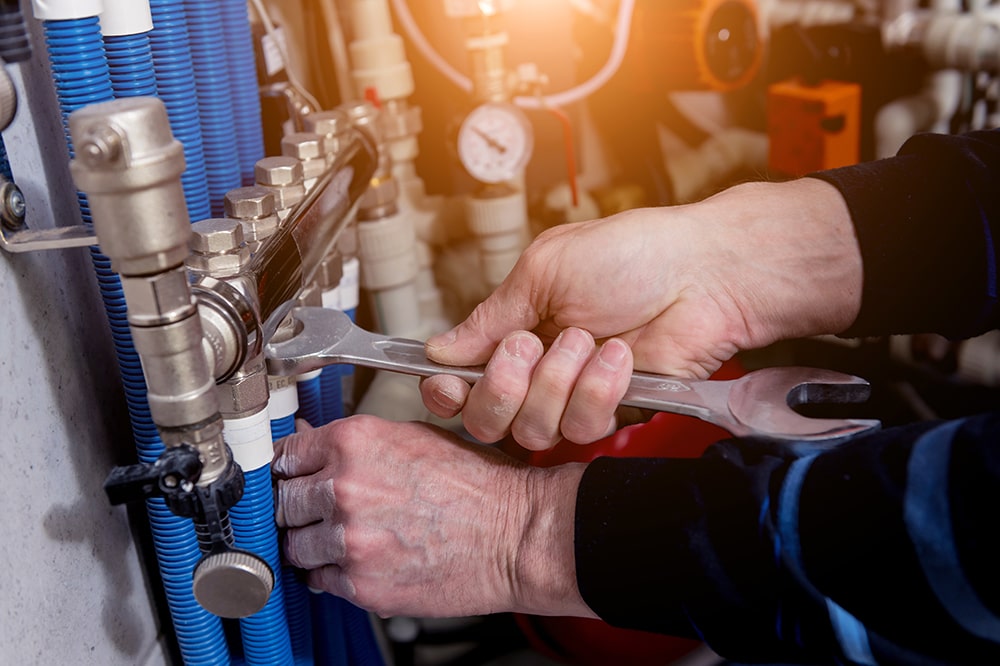
Heating systems are essential for maintaining a comfortable and safe indoor environment, especially during the colder months. Regular maintenance not only extends the life of your system but also ensures it runs efficiently, which can save you money on Chauffagiste Schaerbeek energy bills. To help you keep your heating system in top shape, we’ve gathered expert insights from heating engineers on effective maintenance practices. This guide covers essential tips and techniques to keep your heating system operating smoothly and efficiently.
- Schedule Regular Professional Inspections
One of the best things you can do for your heating system is to schedule regular inspections by a qualified heating engineer. Most experts recommend having your system professionally inspected at least once a year, ideally before the colder months begin. During an inspection, the engineer will check for any worn or damaged components, clean essential parts, and make necessary adjustments to optimize performance. Regular check-ups can prevent costly repairs by catching issues early and ensuring that your system is safe and efficient. - Replace or Clean Filters Frequently
Dirty or clogged filters are a common issue in heating systems, leading to poor air quality and reduced system efficiency. The role of the filter is to trap dust, pollen, and other particles, keeping your air clean and preventing debris from clogging the system. Heating engineers advise checking filters every month and replacing or cleaning them as necessary, usually every three months or more frequently if you have pets or allergies. Clean filters allow your system to work efficiently, reduce energy consumption, and prevent undue strain on the equipment. - Maintain the Thermostat
The thermostat is the brain of your heating system, controlling the temperature and ensuring the system operates when needed. To maintain accurate temperature control and reduce unnecessary wear, it’s crucial to keep the thermostat in good working order. Heating engineers recommend periodically recalibrating the thermostat to ensure it reads the temperature correctly. You may also consider upgrading to a programmable or smart thermostat, which can optimize your heating schedule based on your habits and preferences, ultimately saving energy and reducing heating costs. - Check for Air Leaks and Insulate Properly
Efficient heating relies not only on the system itself but also on the integrity of your home’s insulation and air-tightness. Even the best heating system will struggle to maintain comfortable temperatures if heat is escaping through leaks or poorly insulated walls and windows. Heating engineers suggest inspecting windows, doors, and other potential points of air leakage, sealing them with weatherstripping or caulk as needed. Adding insulation where necessary, particularly in attics and basements, can help retain heat and reduce the workload on your heating system, improving its efficiency and lifespan. - Clean Vents, Registers, and Ducts
Blocked or dirty vents and registers can significantly reduce the efficiency of your heating system. Dust and debris accumulate in these areas over time, impeding airflow and forcing the system to work harder to maintain desired temperatures. Regularly cleaning vents, registers, and ducts ensures better air circulation and reduces strain on the system. Many heating engineers recommend a full duct cleaning every few years, especially if you notice dust build-up, musty odors, or have allergies. Keeping these components clean supports better air quality and helps your heating system perform optimally. - Know When to Call a professional for Repairs
While there are many steps you can take to maintain your heating system, it’s essential to recognize when professional repairs are necessary. If you notice unusual sounds, inconsistent heating, frequent cycling on and off, or rising energy bills, it may be time to consult a heating engineer. Attempting to fix complex issues on your own can often lead to further damage and costly repairs. An experienced heating engineer can diagnose and resolve problems accurately, helping you avoid breakdowns and keep your system running smoothly throughout the colder months.
Conclusion
Heating system maintenance is essential for ensuring comfort, energy efficiency, and the longevity of your equipment. By following these expert-recommended maintenance tips, including scheduling regular inspections, changing filters, maintaining the thermostat, sealing air leaks, cleaning ducts, and seeking professional repairs when needed, you can keep your heating system in top condition. These simple steps can provide long-term savings, reduce unexpected breakdowns, and keep your home warm and comfortable all winter long.
